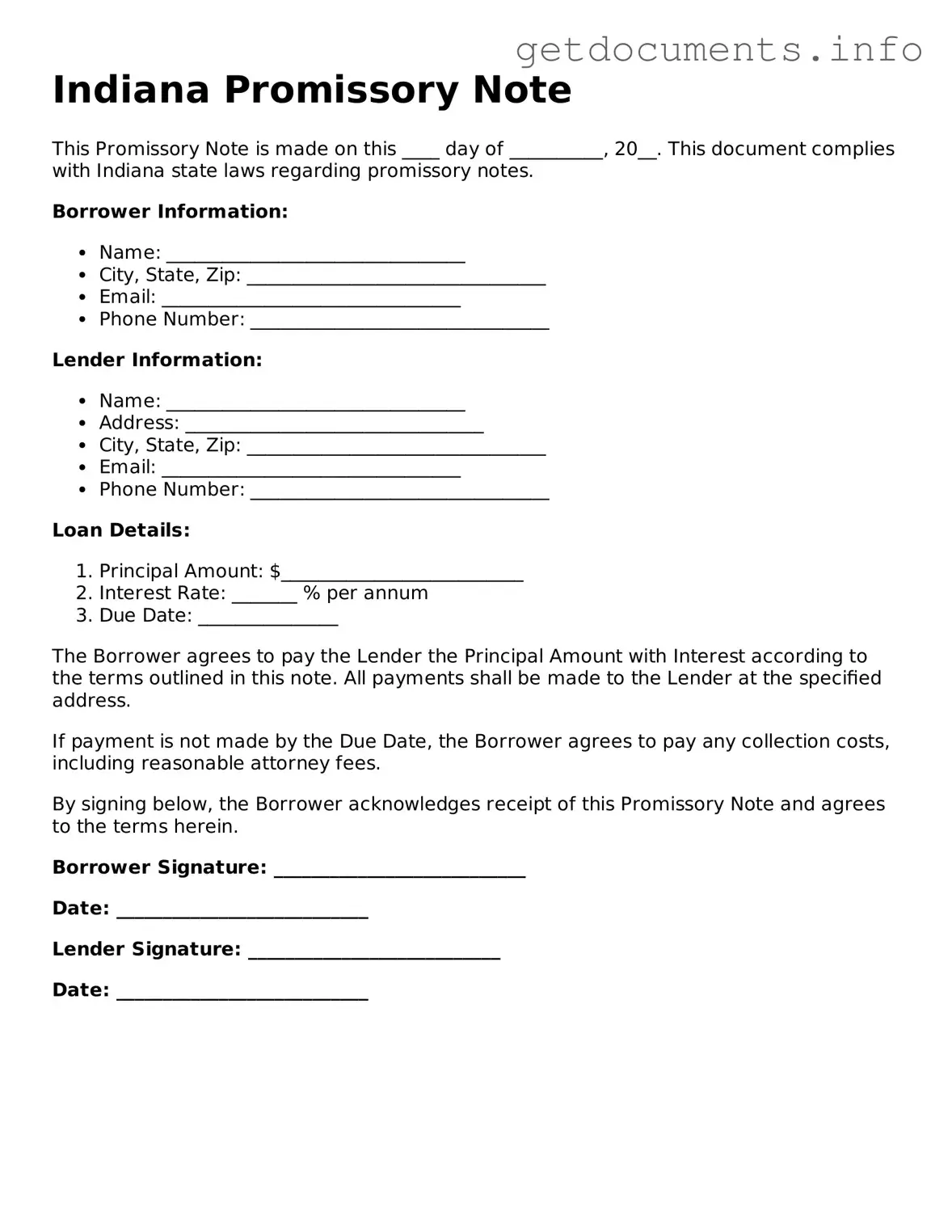Free Promissory Note Template for Indiana
A Promissory Note in Indiana serves as a written promise to pay a specified amount of money to a designated person or entity at a future date. This legal document outlines the terms of the loan, including interest rates and repayment schedules, ensuring clarity for both the borrower and the lender. Understanding how to properly fill out this form is essential for a smooth lending process; click the button below to get started.
Access Promissory Note Editor

Free Promissory Note Template for Indiana
Access Promissory Note Editor
Got places to be? Complete the form fast
Fill out Promissory Note online and avoid printing or scanning.
Access Promissory Note Editor
or
⇩ PDF File
